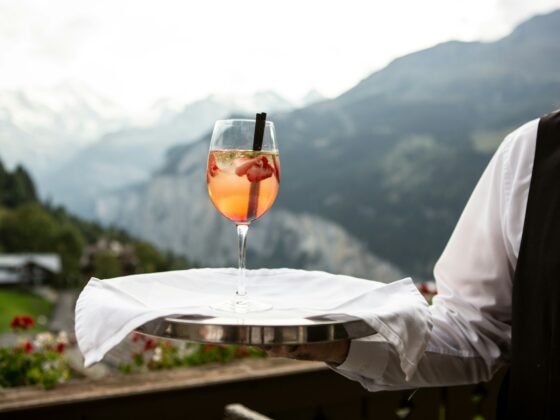Between today’s links and tomorrow’s in-feed bookings lies the next quiet evolution in hotel marketing
Oct 13, 2025
Key takeaways
- Social commerce is already happening in hospitality. Every post that leads a guest from discovery to booking belongs to it.
- The distinction is where the purchase happens. Retail keeps it inside the platform; hotels still send guests out.
- Every click adds friction. The shorter the path from inspiration to booking, the higher the conversion.
- Technology and trust both matter. Until booking systems and APIs align, hotels will rely on linked models.
- Understanding the difference helps hoteliers prepare for a time when bookings will happen directly within the social feed.
In retail, social commerce means the purchase happens exactly where desire begins. You see a jacket in a Reel, tap “buy,” and check out without leaving the app.
Hotels don’t quite work that way. The booking still takes place on their own website or through a partner. But when a traveler watches a short video of a seaside suite, follows the link below it, and reserves a stay — that’s social commerce too. The post sparked the wish, the link completed it.
The difference isn’t in how people behave. It’s in how the systems connect. Retail can close the loop inside the platform; travel still depends on separate booking infrastructure. Yet the underlying pattern is the same — discovery leading directly to purchase — and hotels are already part of it, even if the transaction happens a few clicks away.
Two models, one behavior
In retail, native social commerce means the entire experience — from browsing to payment — stays inside the app.
Hotels, by contrast, rely on linked social commerce. The content lives on social media, but the transaction happens elsewhere — typically on the hotel’s own booking engine. The “link in bio” or “Book now” button connects the emotional spark of a story to the practical step of reservation.
For the guest, the difference may be invisible. For the industry, it’s a technological gap.
Why travel is still in the linked era
Part of the reason is complexity. A t-shirt has one price. A hotel room changes with date, length of stay, and occupancy. Making that data available in real time requires deep technical integration — something social platforms are only beginning to support.
The more fundamental dependency is the central reservation system (CRS). To enable booking directly within a social app, a hotel or brand needs a CRS capable of exposing real-time rates, availability, and rules through an open API – like reconline provides. The entire process — search, pricing, payment, confirmation, and potential modification — must flow through that connection.
For most independent hotels, such connectivity doesn’t yet exist. The realistic bridge for now is an intermediary, often an OTA or commerce partner, until CRS providers make those social integrations possible.
And there’s a matter of control. Once a booking happens inside another company’s platform, who owns the guest relationship? Who handles changes, payments, or cancellations?
The quiet cost of friction
Every extra click between “I want to stay there” and “I’ve booked it” carries risk. Retailers have learned this well; travel is catching up.
A viewer might be captivated by a TikTok video of a property, click the link, reach the hotel website, and then pause — distracted, interrupted, gone. Native social commerce could reduce that loss by keeping the process inside the same emotional space where inspiration occurred.
Until that’s possible, hotels can still refine the experience they control: fast, mobile-first pages, clear offers, and fewer steps. Linked commerce works best when it feels almost native.
The opportunity hiding in plain sight
Hotels already have what most brands spend fortunes to create — visual stories that make people dream. Every sunrise from a balcony, every glimpse of a lobby moment, every guest story can translate directly into intent.
What’s often missing is the bridge. Too many hotels still link from social posts to a homepage rather than to a simple, trackable booking page with relevant rates and dates. It’s a small adjustment that turns inspiration into measurable revenue.
Some hotels are beginning to close that gap: pairing short-form videos with dedicated “book direct” pages, or working with creators whose content leads to personalized landing experiences. It’s still linked commerce, but handled with purpose.
Why the distinction matters
The two models — native and linked — will eventually meet. Experiments like TikTok’s pilot with Booking.com hint at what’s ahead: content that doesn’t just inspire travel but enables it instantly.
Hotels that already treat social storytelling as a form of commerce — refining their links, tracking performance, and understanding conversion — will be ready when that moment arrives. The technology will catch up; what matters now is mindset.
Recognizing that social content already sells reframes how hotels see their own marketing. It’s not just awareness. It’s not just inspiration. It’s commerce — gentle, visual, and already in motion.
by Markus Busch, Editor/Publisher Hospitality.today







